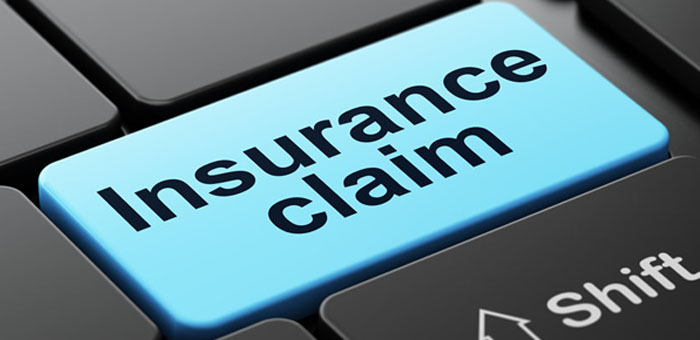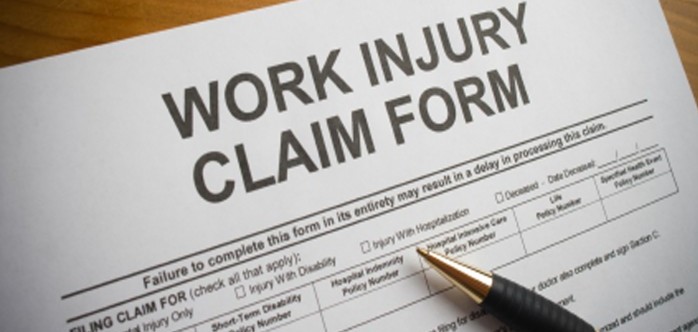Handling conflict in the workplace is never easy. That’s probably one reason “How do you deal with conflict at work?” is one of the most common interview questions asked in every industry. This question can help hiring managers assess an applicants ability to work in a team setting and resolve interpersonal problems.
If you’re preparing for an interview, it’s smart to prepare for this question. To help you out, I’ve written 21 savvy responses about responding to workplace conflict. Feel more confident heading into your next interview by preparing for all the different variations of this basic question.
Page Contents
- Tell Me About a Time You Dealt with a Difficult Coworker?
- How do You Resolve Conflict with Other Coworkers?
- Tell Me About a Time You Had to Work with a Difficult Team?
- Tell Me About a Time You Worked with a Difficult Customer?
- How do You Handle Conflicts in the Workplace?
- How can You Prepare for Difficult Interview Questions?
Tell Me About a Time You Dealt with a Difficult Coworker?
I think the best way to respond to this question is by recalling a time you had an issue with a colleague and were able to resolve the problem through communication.
- In my previous role, I was part of a team. However, there was someone in our team that did not like to be involved in the group. When they were forced to help the team, he/she would do so in a sluggish manner, which resulted in friction. When an opportunity came for the both of us to talk, I immediately jumped on the opportunity. I asked how I could support the individual in the project. After a long talk, I was able to establish the trust of this colleague and it transformed our relationship moving forward.
- I had a coworker before that would always interject in meetings with anecdotes that were irrelevant to the meeting for a quick laugh. As a result, meetings were longer, which meant losing valuable time to handle other tasks. So, I decided to confront this coworker, but in a polite manner. He/She told me that he/she thought making those remarks would brighten the mood. This helped me understand where my colleague was coming from. I learned that I should always assume positive intent in the workplace.
- An old coworker of mine used to love doing pranks on other employees. It was obvious that many people in the office didn’t appreciate them. This is because most of his/her pranks would cause the victim to lose valuable time. When an opportunity presented itself for me to talk with him/her, I took action. In a gentle manner, I confronted him/her regarding the pranks. Following a long and thorough discussion this coworker understands the mistake and took my guidance to heart. The pranks stopped on that day and I remain friendly with this coworker today.
You Might Like: 255+ Positivity Affirmations for Each Day of the Work Week
- In my previous job, I had the opportunity to be part of a team for a major project. Since it was such an important task, we needed all hands on deck. Everyone understood that except for this one member. Whenever we had meetings, he/she wouldn’t pay attention. Instead, he/she would be on the phone despite us telling him/her to put it down numerous times. And, since he/she didn’t pay attention, this coworker would ask us repeatedly what needed to be done, causing delays. Finally, I decided to sit down with him/her because I know the level of urgency that was needed to finish the project on time. I reminded him/her of the importance of being attentive in meetings, as well as the project. After realizing what he/she did wrong, he/she apologized to everyone in the team.
- With the company I used to work for, I handled a team in my department. Despite being a group project, each team member had individual tasks to serve the project. However, one of our members kept on submitting tasks late. When I confronted this person, he/she became defensive. I maintained my composure and said things in a calm manner regarding the importance of submitting work on time. Eventually, he/she calmed down, and I asked why he/she would submit tasks late. He/she answered that he/she was also working with another team regarding a separate project. I thought the best solution was to approach the other project manager. Together, we applied a solution to lighten the workload of the employee. Afterwards, he/she always submitted tasks on time.
How do You Resolve Conflict with Other Coworkers?

At some point, you’ll experience conflict with a coworker.
- When dealing with a difficult coworker, I would always ensure that I had not contributed negatively to the present situation. Afterwards, I would find time to have a conversation with them and try to find a possible solution, so that the both of us can move forward. Once that’s done, I would try to build rapport with them and ask if I can assist them when it comes to a project so that we can build a relationship. Another thing I would do is to ask what was important for them. Ultimately, we are both employees of the same company and we will do everything we can to help the company achieve its goal.
- For me, communication is absolutely vital in the workplace. It enables people to work together more fluidly. Plus, I believe it is absolutely essential when trying to resolve a conflict. Of course, I would need to confront the coworker, but I would do so in a calm manner. I will try to ask them why they’re doing what they’re doing, which allows me to understand things from their perspective. Then, I would assure them that we will come up with a solution to help us move forward. In doing so, I’m able to build a relationship with them, and I will make sure to maintain it to avoid future conflicts.
You Might Like: 89+ (Positive & Negative) Performance Review Phrases for Customer Service
- I understand that working with a coworker with whom you have conflict with can prove to be detrimental to the company’s objectives. As much as possible, I would try to resolve the conflict as early as possible, so that it won’t escalate. I find that having a talk with them is how I can resolve an issue. Specifically, I would ask them their side in a calm manner, so that I can acknowledge them and the situation correctly. Afterwards, I would try to find a possible solution to the problem. Finally, I would assure them that I would help them to avoid such a conflict from happening again.
- Whenever there is conflict between me and another employee, I choose to stay composed to prevent the situation from escalating. Then, I would pick the best time to have a sit down with that coworker. When we both have the chance to talk, I would always start by asking them if I did them wrong in any way. If that is the case, I would apologize sincerely and ask them what I could do to resolve the issue. Next, I would assure them that the problem won’t happen again. After all, both of us are simply helping the company achieve its goals and having conflict won’t serve that purpose.
Tell Me About a Time You Had to Work with a Difficult Team?

Have you ever worked next to a difficult colleague?
- I worked as a project manager at the company I worked for, which meant that I handled a team. A few weeks into an ongoing project, many of my team members submitted their tasks late. From my perspective, they worked in a sluggish manner with little to no interest in the project. So, I quickly called a team meeting to get things in order. I asked them why they seemed disinterested in working. I found out that it’s because they were overworked from other tasks. Upon knowing that, I decided to talk with management regarding their workload. In doing so, I was able to ease their work and productivity has skyrocketed since then.
Working on a team means helping each other with certain tasks. However, the team I used to work with has difficulty when it comes to collaboration. They would rather work separately. In a meeting with our project manager, I took the chance to address this issue. I told the team about the importance of our teamwork so that work is easier; of course, in an assertive yet respectful way. I also said that I would be the first one to reach out to them if they needed help, since they shared that it was difficult for some of them to ask for assistance on a task.
- Depending on the task, I’m used to working by myself, which I found was a strength of mine. Nevertheless, I have no problem working with a team. During my tenure at my previous work, I was part of a team that frequently finished tasks quite near the deadline. This was difficult for me because my task depended on the group, since I would be the one to compile everything. So, I decided to speak up during a meeting but in a calm manner. I told them that if they had any trouble with their tasks, they can come to me so that I can help them, and so they can finish as early as possible.
- When I was in my last position, I used to work with a group of members that had trouble disseminating information from meetings. Unfortunately, this would derail group productivity and would cause projects to be delayed. With the help of our project manager, I explained the situation with the others. Aside from that, I also offered that I would take charge of the minutes of the meeting, since I have no trouble with taking down notes. All of them agreed with this and the group’s productivity grew since then.
Tell Me About a Time You Worked with a Difficult Customer?

In a one-on-one meeting.
- I used to work as a barista at a coffee shop. A customer walks in, gives me their order, and I told them I would bring it to their table. However, I gave them the wrong order. The customer was visibly upset, so I sincerely apologized for my mistake and told them that I would correct their order for free. However, the customer kept on criticizing my error. So, I instructed my coworkers to make their orders right away. I reassured them that the mistake won’t happen again. After my coworker brought over their drink, I gave the customer a couple of coupons for free drinks. This brought a smile to their face, and it was enough to deescalate the situation.
You Might Like: 115+ Performance Review Phrases for Personal Integrity (Positive & Negative)
- I worked as a customer service representative for an internet service provider. With this line of work, I received plenty of phone calls from our internet subscribers on a daily basis. Now, before our company raises the prices of these subscriptions, we make sure to notify each customer months ahead. To our surprise, a customer called to complain about the increase of payment. I talked with my supervisor about this and proposed that we direct all calls regarding this matter to billing, so that we can cater to other customer concerns.
- I previously worked as a cashier for a clothing store. Oftentimes, a few customers would come in and try to ask for a refund without a receipt. When this happens, I make it a priority to apologize. I would also ask them if they paid with a credit card, so that I can check our system. If that’s not the case, I would explain to them our store’s return policy and tell them about the other options they can choose.
- I worked as a waiter at a local restaurant in my area. When I served a customer their order, they complained that it was not what they ordered. However, I distinctly remember that it was what they had ordered and it also says that on my notepad. I quickly apologized for my error and told them I would be happy to replace their order. But, the customer kept on complaining and asked to see the manager. So, I called my manager and spoke to him about the situation. He understood my side, but still went to the customer to try and resolve the issue. I learned how important it is to stay composed in the face of a customer even though you’re on the right.
How do You Handle Conflicts in the Workplace?
- When I was still working for my previous company, our project manager provided detailed instructions for us to follow. However, I wasn’t able to follow them accordingly. As a result, the work I turned in was mediocre. My project manager quickly confronted me as to why I didn’t follow the instructions. I apologized for doing things on my own and I assured him that I will work closely with him on tasks to avoid this from repeating.
- When it comes to group projects, it’s normal for others to have different opinions or suggestions on how things should be done. I find it easier to have an open mind when it comes to this and actively listen to what my coworkers have to say. If I find that their idea is better than mine, I can accept it and put my trust in my teammate.
- In my years of experience in the workforce, I found that it’s best to handle conflict with a calm mind. Whenever it arises, I would ask my coworker various questions and understand their point of view. This helps minimize the conflict and makes them feel like they have a voice. In doing so, it’s much easier and faster to come to an agreement.
- Handling conflict is always a challenge. It’s easy for one to lose their temper and make the situation worse. That is why I choose to approach problems with a calm demeanor and an open mind. It allows me and others to communicate clearly, leading to a prompt resolution to the problem.
How can You Prepare for Difficult Interview Questions?

An interview can be stressful.
- Practice beforehand – Practice responding to common interview questions that you might get asked. You can practice by yourself or with someone else that’s will to listen and provide feedback.
- Slow down – The interview process can sometimes feel like an interrogation. This causes us to start rambling because we don’t know what to say. So, take a breath and slow down. Remember, it’s not about how fast you can answer the question, but how clear the answer is going to be.
- Express how you’re willing to improve – “What is your greatest weaknesses?” is probably one of the questions you need to be ready for. It’s best to follow up your answer on the specific ways you’ve worked to improve on a specific weakness in the past. Don’t be afraid to share a weakness. We all have them and it might even make you more relatable.
- Bring a copy of your resume – One of the first questions an interviewer will ask is, “tell me about yourself.” It’s easy to answer your hobbies or favorite flavor of ice cream. However, answers about personal life aren’t what a Human Resources manager is looking for. Instead, tell them about your professional experience as it relates to the role.
No matter how great your workplace is you’ll inevitably encounter a difficult coworker. When an issue comes up a best practice is to resolve the conflict as quickly as possible. In fact, according to a survey by the Niagara Institute 70.7% of respondents try to resolve the conflict quickly while at work.




